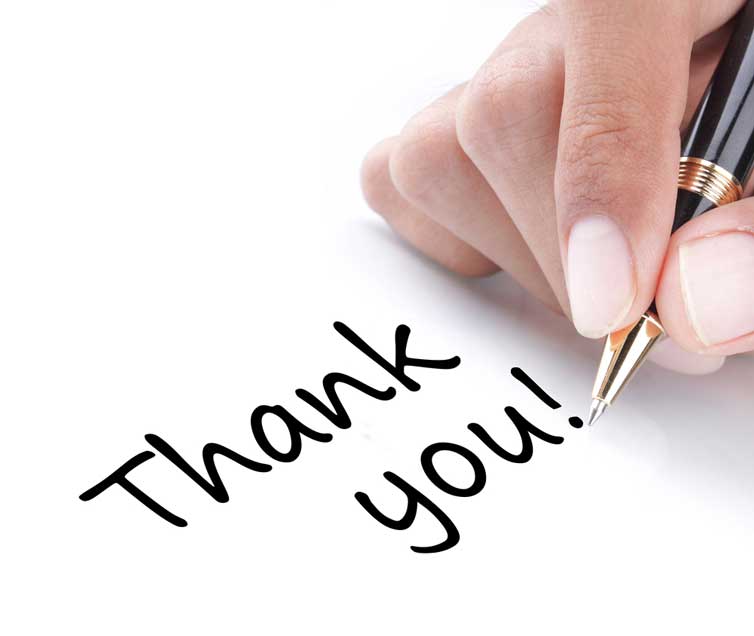Is the thank you letter needed, and do hiring managers read it?
Truth?
If you are writing your executive-level thank you letter as just a formality and not leveraging its full power, then don’t waste your time writing it.
What Is The Problem With Most Thank You Letters?
The problem with most interview followup letters is they are usually prepared as merely a nice gesture.
Saying thank you is a very nice thing to do, and it does go a long way, but when you write a followup letter like an ordinary ‘thank you’, it is not strategic enough to add another dimension to your candidacy.
In other words, use this followup opportunity as the last marketing tool to gain a competitive distinction and win that second executive interview.
If you use this thank you letter strategically, this interview followup letter can be a critical piece of your executive job search package (executive resume, cover letter, LinkedIn, executive bio) and help you soar above other top-tier executives.
The Power of a Strategic, Persuasive Interview Followup Letter
Remember that interview that you bombed? You were perfect for it but failed to address all of the hiring manager’s pain points.
Did you follow up with a thank you letter? No? You should have.
When you take the opportunity to draft a letter after the interview that will either reinforce your candidacy or bridge any gaps, you are optimizing the connection you are making by way of this thank you letter. Don’t underestimate the leverage of a well-written, value-add letter which will position you back in the ‘game.’
How To Write An Executive-Level Thank You Letter That Helps You Win
Here are a few strategic actions for you to take advantage of the followup opportunity. Remember that after your interview, you have more information on the company and insight as to what the employer is searching for in the ideal candidate—don’t waste this intel by simply saying ‘thank you.’
When Your Interviewer Shared a Concern:
If during the interview process, you were told that the perfect candidate must meet XYZ and you discussed your lack in one of these areas, you need to try and bring this up in your thank you letter again.
Concisely revisit this weakness and reiterate why this would not be a problem. In fact, promote how despite this perceived gap in your qualifications, you are the PERFECT candidate.
When You Did Not Say What You Should Have Said:
Hindsight is 20/20, they say. Boy if I had a penny for every time I failed to say what I should have said. Well. I would have a lot more in my bank account.
If you failed to make a critical point that would have showcased how perfectly qualified you are for this executive position, the followup letter is your second chance. Bring up the topic in your letter in perfect alignment with what they needed to hear.
When You Think You Sensed Apprehension:
This is a bit risky because you could be wrong. Yet, what is life, if not risky? If you are very perceptive and you KNOW that you sensed a problem– address it.
When You Just Want to Say Thank You:
There are times when you were FANTASTIC during an interview, and you sincerely just want to say, ‘thanks!’ Nevertheless, you don’t know how your competition performed, and you are not privy as to what kind of thank you letter others are preparing. So, in this case, thank them but fortify your candidacy and your executive brand even further.
How can you simply say thank you but reinforce your candidacy?
You could…
- Accentuate three of your top qualifications, as discussed during the interview. Now you have more information than you did before the interview—put it to work for you!
- Connect your qualifications with employer needs expressed during the interview.
- Bring up information they shared about the company and express how much more interested you became after learning more about the role.
- Sell them again on the bottom-line goal. Seal the deal by promising to deliver.
Keep this thank you letter concise. While it is a marketing tool, it does not have to be as elaborate as your resume or cover letter.
The entire job search process is a strategic marketing effort; therefore, leverage every tool and maximize every opportunity.
To learn more about our resume writing services, please visit this page.




